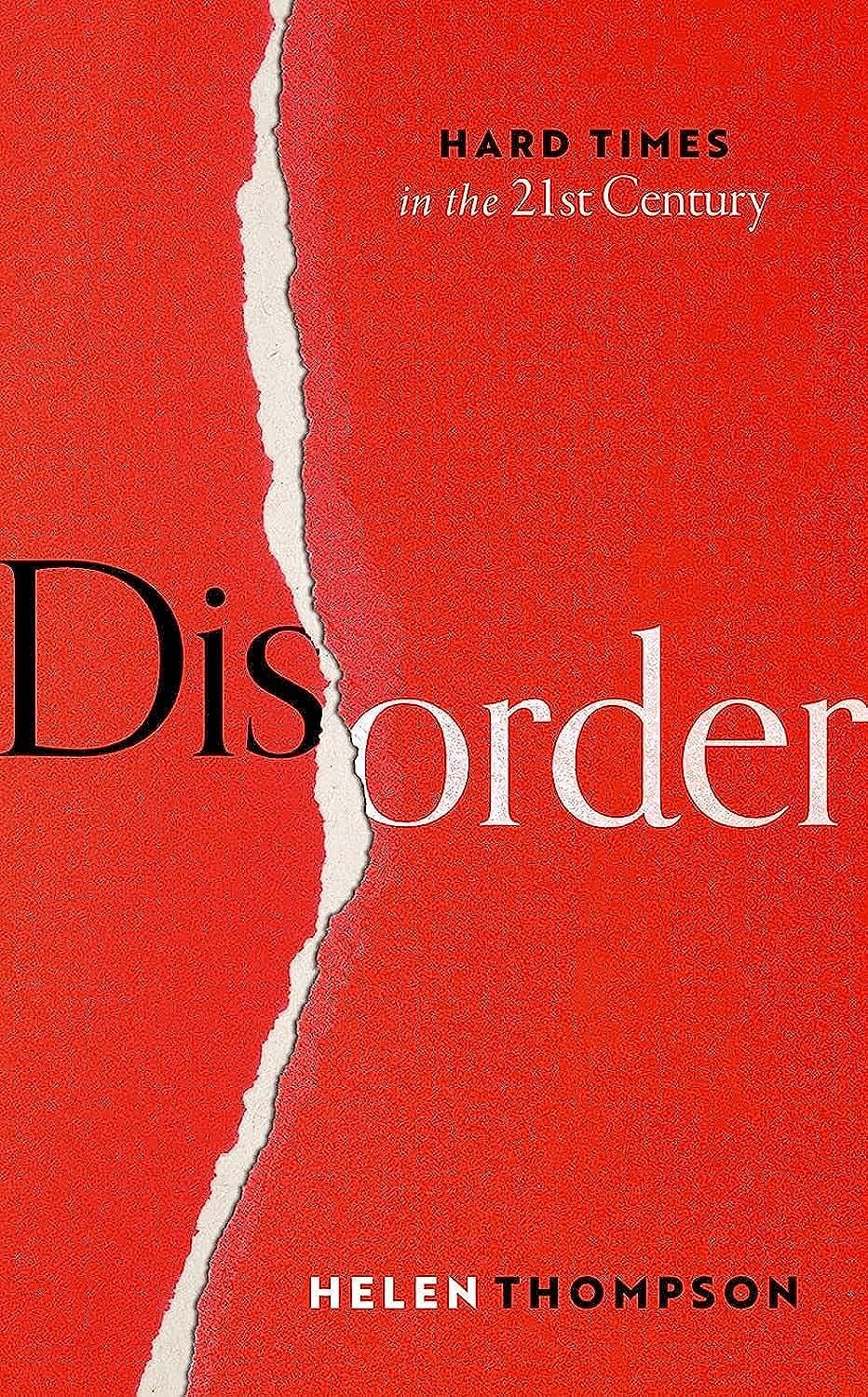About this deal
Yet in her view, accounts that root the global crisis in this sort of balance of payments analysis are “misleading.
Disorder: Hard Times in the 21st Century by Helen Thompson
The first is that energy supplies tend to be added to the world supply without others being taken away.
During the war, American involvement in Middle Eastern oil grew, partly because of the sheer volume of oil the war required. In 1962, in an effort to derail the building of the Druzhba (Friendship) oil pipeline between the Soviet Union and Central Europe, US President Kennedy demanded that Western companies stop supplying wide-diameter steel pipe to the project (echoed in the 2010s in the US’s sanctioning of Western companies involved in the construction of Nord Stream 2), but this ultimately failed, and the pipeline was built. To publish a book that weaves together the stories of energy geopolitics, international finance and democratic politics on 24 February of 2022 was an inadvertently risky thing for Helen Thompson, a professor of political economy at the University of Cambridge, to do, given it was the day that Russia invaded Ukraine.
Disorder: hard times in the 21st century | International
And if “the United States succeeds in breaking its dependency on Chinese manufacturing supply chains” while “China expands its domestic markets to compensate,” why would that necessitate conflict, as opposed to restoring the amicable relations that preceded the dislocations of the 2000s? Thompson’s warning that we should not be looking for ‘forensic detail’ in the broad sweep of her argument should be borne in mind. That referendum, it must be remembered, was decided in a close vote that was only held because the Tories won an unexpected parliamentary majority the year before.International finance has also threatened one means of creating a sense of nationhood, the creditor-debtor relationship. Often misunderstood as a crash caused solely by American subprime borrowing and financial sector deregulation, there was much more at play, as Professor Thompson explains. The International Energy Agency was formed out of a result of the first oil shock, the US government’s attempt to create more international cooperation on energy. In regard to democratic politics, Professor Thompson identifies two sources of potential instability – democratic excess, and aristocratic excess, this too tied to finance. This hugely diminished oil revenues for the Soviet Union, reducing its capacity to finance domestic spending, adding another destabilising factor that led to the dissolution of the Soviet project in 1991.
Century’s Global “Disorder”? | The Nation What Is Fueling Our Century’s Global “Disorder”? | The Nation
Just to ask what would have happened if French voters had narrowly voted ‘yes’ in 2005 and Tony Blair had lost the referendum he had promised to hold shows how David Cameron’s decision-making, far from being an aberrant beginning, was the end of a story about weakening British democratic consent to the EU. Quite clearly, the EU also had a long-term predicament centered around the relationship between Union-level treaties and national elections. Thompson warns the reader at the outset that she aims to privilege ‘the schematic over forensic detail’. And that was before the pandemic killed tens of millions of people and Russian President Vladimir Putin’s brutal invasion of Ukraine displaced millions more and upended global commodity markets. But as Putin has reminded the world so vividly this year, individual choices can still make a difference—for better and for worse.
One significant geopolitical development of the mid-2000s was China's increased efforts to pursue energy security in a world dominated by American naval power. And this underconsumption and underinvestment had its own origins in the choices of Germany’s policy and business elites. The German government may have been led by scolds who practiced “ pedagogical imperialism,” in the words of Der Spiegel, but ordinary Germans failed to benefit from its austerity. Meanwhile, in Europe, the world made by the Cold War’s end, German reunification, and the run of EU treaties from Maastricht had begun to unravel. No one will agree with all the arguments, but for those that do take the time to read it will find their time well spent.
Disorder (豆瓣) - 豆瓣读书 Disorder (豆瓣) - 豆瓣读书
Around the same time, the Ba’athist government in Iraq nationalised the Iraq Petroleum Company, and the Saudi Government took majority ownership of Aramco. Although the US did not support Britain, France and Israel on it, in general it expected Western Europe to source oil from the Middle East, so that oil from the US and Venezuela could be consumed in the US, with security being provided by the British military. As this arrangement broke down, creating a supply problem, European countries instead turned to the Soviet Union for oil. Missing here are the Syrian civil war, NATO actions in Libya in the 2010s, China’s rising demand for energy and the effects on international finance, the US shale revolution, Turkey’s increasingly militaristic claiming of oil and gas resources in the Eastern Mediterranean, amongst other things, but being more recent these might be more familiar to the reader.Still others believe that today’s liberals have failed to prioritize the real reason behind liberalism’s decline: the illiberal enemies undermining and destroying it. K. government may not have won all of its battles over euro-denominated clearing while it was inside the EU, it clearly has had far less negotiating leverage with the rest of the European Union after it decided to leave. China did not practice “export-led growth” but rather wage suppression and financial repression that held down imports. It is not possible to understand why some places had debt booms and busts while others did not without also understanding how underconsumption and underinvestment were transmitted abroad through trade surpluses and deficits.
 Great Deal
Great Deal 